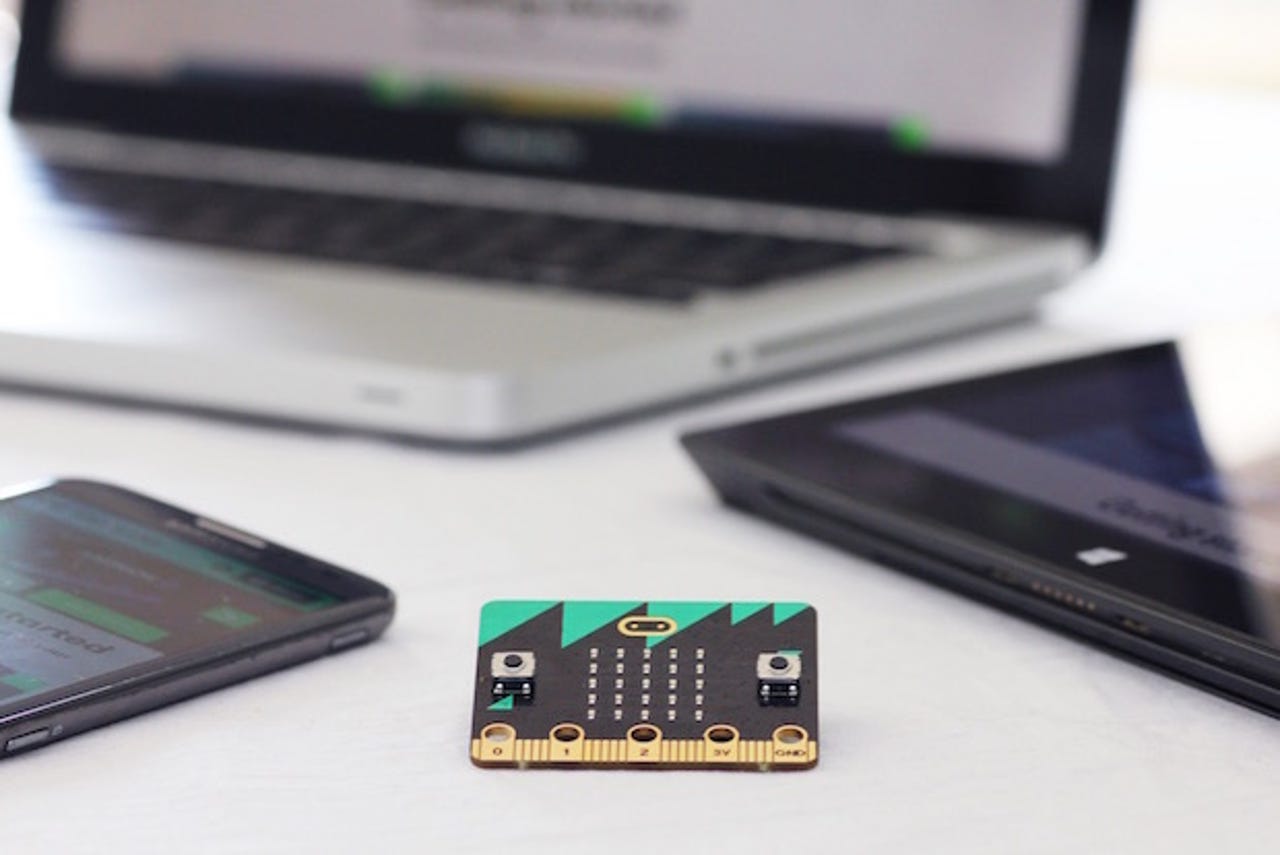BBC micro:bit arrives in the US: Can it repeat Raspberry Pi's success?


The BBC micro:bit can display images and text, has two programmable buttons, a motion detector and compass, and can connect to other devices via Bluetooth.
A tiny programming board developed by the BBC to encourage UK kids to take up coding and kick-start a new wave of entrepreneurs is now available in the US.
The BBC micro:bit was created by the BBC and a set of technology companies including ARM, Microsoft and Premier Farnell with the aim of encouraging more students to explore computer science.
While it's a more basic device than the vastly successful Raspberry Pi, it's also aimed at a younger audience.
The micro:bit includes 25 LEDs, which can display images and text, two programmable buttons, motion detector and compass, and can connect to other devices via Bluetooth. Pins on its edge also allow other hardware modules to be added. It can be programmed using Scratch and Microsoft MakeCode.
At launch, the BBC said the 4cm/1.6in-by-5cm/2in device was the corporation's most ambitious technology initiative since it launched the famous, and rather larger, BBC Micro desktop computer back in the 1980s. The BBC Micro was for many children in the 1980s their introduction to computing and has been credited as inspiring a generation of UK tech entrepreneurs.
Four decades later, the BBC is aiming for a similar impact with the diminutive micro:bit, which was given free to every 11- to 12 year-old student in the UK last year.
The Micro:bit Foundation now has high hopes for the tiny device in the US, with the target of putting the device into the hands of two million elementary and middle-school students in the US and Canada by 2020
Here comes the BBC Micro Bit, the tiny board that wants to surpass the BBC Micro
"In the digital age, computer science is a foundational skill vital for every student to learn. It's a skill that applies to many different subjects, including math, science, art and music," said Hal Speed, head of North America at the Micro:bit Foundation, an international nonprofit organization.
The foundation quotes a study by Gallup, which found that 90 percent of parents in the US want their kids to learn computer science, but only 40 percent of schools offer it.
It warned that the diversity problem in science, technology, engineering, and maths starts in elementary school because girls, students of color and lower-income students are all less likely to have access to computer science learning in K-12 schools.
The foundation is working with organizations that develop school curricula, while Microsoft has also developed its own curriculum for the micro:bit.
The device starts at $14.95 and resellers include Adafruit, CanaKit, Fair Chance Learning, Fry's, MCM Electronics, Micro Center, SparkFun.